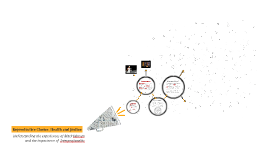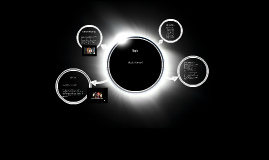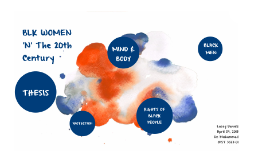Black Women
Transcript: Did you know that — Approximately one in seven African American babies in California is born too early or too small? African American babies are more than twice as likely as White babies to die before their first birthdays? African American women are much more likely than White women to die of pregnancy-related complications? The reasons for these health disparities are complex and cannot be fully explained by differences in underlying medical conditions or behaviors like smoking. In fact, many experts believe that aspects of social disadvantage—including poverty, lack of social support, and racial discrimination—are important contributors to the increased risks of poor maternal and infant outcomes among African Americans. Current scientific understanding suggests that experiencing these kinds of stressful conditions—not only during pregnancy, but throughout life—can have dramatic adverse effects on a woman’s own health and that of her baby. The California Black Infant Health (BIH) Program aims to improve health among African American mothers and babies and to reduce the Black: White disparities by empowering pregnant and mothering African American women to make healthy choices for themselves, their families, and their communities. Within a culturally affirming environment and honoring the unique history of African American women, the BIH Program uses a group-based approach with complementary client-centered case management to help women develop life skills, learn strategies for reducing stress, and build social support. BIH clients participate in weekly group sessions (10 prenatal and 10 postpartum) designed to help them access their own strengths and set health-promoting goals for themselves and their babies. In addition to helping clients reinforce the skills and knowledge they develop in the group sessions, one-on-one case management ensures that clients are connected with the appropriate community and social services to meet their needs. Each woman culminates her participation in the program by developing her own individual Life Plan to guide her continued progress after BIH. Reproductive Choice, Health and Justice Intersectionality (or intersectionalism) is the study of intersections between forms or systems of oppression, domination or discrimination. An example is black feminism, which argues that the experience of being a black woman cannot be understood in terms of being black, and of being a woman, considered independently, but must include the interactions, which frequently reinforce each other. This feminist sociological theory was first named by Kimberlé Crenshaw in 1989, though the concept can be traced back to the 19th century. The theory suggests that—and seeks to examine how—various biological, social and cultural categories such as gender, race, class, ability, sexual orientation, religion, caste, and other axes of identity interact on multiple and often simultaneous levels, contributing to systemic injustice and social inequality. Intersectionality holds that the classical conceptualizations of oppression within society, such as racism, sexism, biphobia, homophobia, transphobia, and belief-based bigotry, do not act independently of one another. Instead, these forms of oppression interrelate, creating a system of oppression that reflects the "intersection" of multiple forms of discrimination.[4] #SayHerName Let's have a discussion to ask ourselves how we can be a resource to and help Black womxn. In no way did I fully explain the complex state of Black womxn in this country. I did not even truly begin. I encourage all of you though to do your own research to learn more. Be a better ally so that we can achieve our common goal. Remember that in order to achieve true equality and eliminate health disparities, especially when considering reproductive rights, we must fight for even the toughest battles because if won, we all win. Intersectionality Understanding the experiences of Black Womxn and the importance of Intersectionality What can we do? Black Infant Health Program Black womxn are all too often unseen in the national conversation about racial profiling, police brutality and lethal force. Say Her Name begins to shine a light on the ways that Black womxn are policed- whether it's police killings, or the "War on Drugs". It also pushes open the frame to include other forms and contexts of police violence - such as sexual assault by police, police abuse of pregnant womxn, profiling and abusive treatment of lesbian, bisexual, transgender and gender nonconforming Black womxn. These are the facts:

















